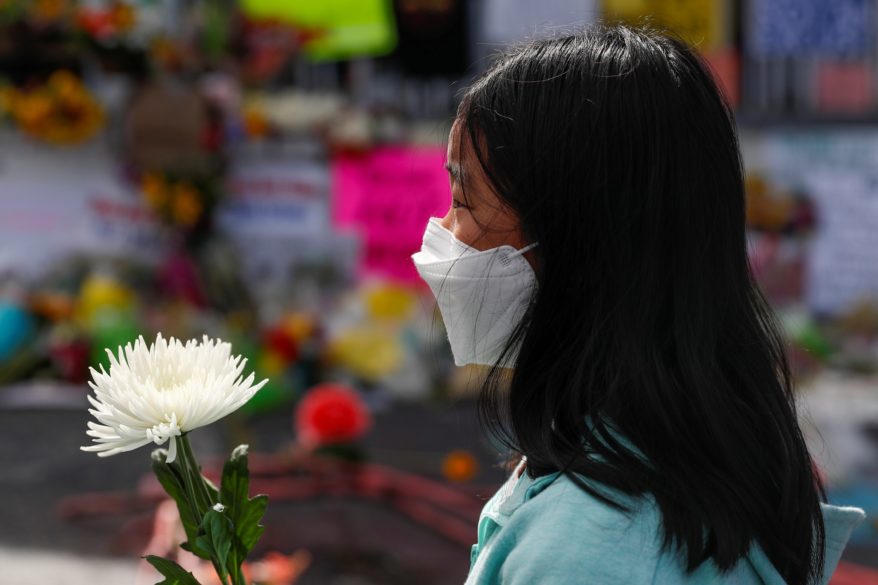By Carol Zimmermann
WASHINGTON (CNS) – In the days following the March 16 shootings in Atlanta that left eight people dead, including six Asian American women, protests and vigils took place around the country remembering the victims and calling for an end to a growing wave of anti-Asian racism and violence.
Two Jesuit universities, St. Louis University and Georgetown University, held vigils online that also included discussion on challenges faced by the Asian American/Pacific Islander community and ways to better advocate for them.

Catholic bishops and women religious also spoke out against the violence and renewed their calls to end racism.
“We must support all victims of violence and stand in solidarity with those who are vulnerable in our communities,” said Atlanta Archbishop Gregory J. Hartmayer in a March 17 statement.
He also pointed out many people “endure discrimination, aggression and violence every day of their lives,” and said Christians must work to protect the whole community, speaking up against aggression and actively pursuing an end to “racism and discrimination of every kind.”
Bishop Oscar A. Solis of Salt Lake City, chairman of the U.S. Conference of Catholic Bishops’ Subcommittee on Asian and Pacific Island Affairs, echoed the Atlanta archbishop’s call to stand in solidarity with the vulnerable.
In a March 22 statement, he said the Atlanta shootings have “prompted national dialogue on addressing anti-Asian bias that has taken the form of numerous other acts of physical violence, verbal attacks and destruction of property against those of Asian descent over the last year that have left communities across the country traumatized.”
The bishop said he was deeply saddened the mass shooting has “tragically taken the lives of eight people and has renewed concerns about a rise of hostility against individuals of Asian descent.”
“As bishops, we decry any kind of hatred and violence, particularly based on race, ethnicity or sex,” he said. “We pray for the families and friends of those who were lost, and for their communities, who may feel unsafe and vulnerable at this time.”
Although the suspect, 21-year-old Robert Long of Woodstock, Georgia, has been arrested and charged with eight counts of murder and one count of aggravated assault for the shootings at three spas in the Atlanta metro area, he has not yet been charged with a hate crime.
Investigators are still looking into if the crimes were racially motivated or if, as Long claimed, they were committed to end his temptation because he is a sex addict.
The shootings touched a nerve across the country in response to a growing wave of anti-Asian violence, particularly since the outbreak of the coronavirus which began in Wuhan, China, last year and had often been referred to by former President Donald Trump as the “China virus” or “kung flu.”
The group AAPI Hate, an advocacy group that tracks hate incidents against Asian Americans and Pacific Islanders, said it had had received about 3,800 reports of hate incidents across the country since last March, up from its usual total of 100 incidents a year.
Days after the Atlanta shootings, President Joe Biden said he urged Congress to pass the COVID-19 Hate Crimes Act. He said the measure would expedite the federal government’s response to hate crimes that have risen during the pandemic, support state and local governments to improve hate crimes reporting and make information on hate crimes more accessible to Asian American communities.
